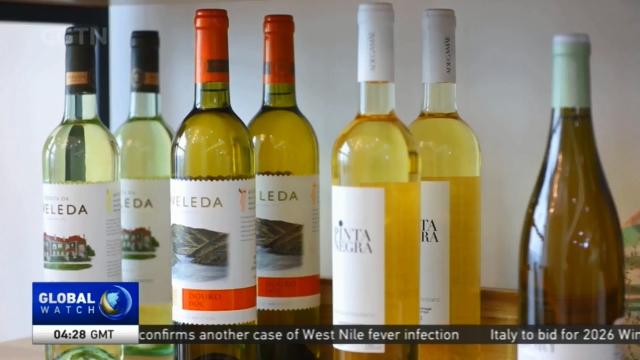
13:04, 02-Oct-2018
China Market, World Opportunity: Exponential growth seen in wine import in China
Updated
12:54, 05-Oct-2018
03:33

Rising demand for it in recent years has made China one of the world's largest wine markets. This fascination is particularly strong in the southern Guangdong province, as some locals even attend classes to experience the rich culture of wine. CGTN's Cui Hui'ao reports.
Swirling, smelling, and sampling, 34-year-old Ye Ting is at a once-a-week wine class in downtown Guangzhou, learning all she needs to know about wine-tasting.
YE TING WINE CLASS ATTENDEE "I know wine is good for your health and it can improve a woman's looks, but I want to learn how to choose the right wine, and how to differentiate the good from the bad."
Ye is not the only class' only young-in. What was once frowned upon as a bourgeois lifestyle, being a wine connoisseur has become a status symbol for China's middle-class.
DARIO SILVA WINE EDUCATOR "They want to be more educated. They wanna show more class."
Dario started his company four years ago, selling Portuguese wine, a popular product in his home country. In his view, teaching wine classes helps make Chinese consumers more knowledgeable about wine, which then drives demand for his company's products.
DARIO SILVA WINE EDUCATOR "Three years ago most professionals would come. But now we get general public. We explain to people why is the wine sweet, why are the alcohol contents are higher, why they can be open for three to four months."
One local wine importer, AFC has long been tracking consumer trends. It imports wines from two specific countries for its customers.
LOUISE WONG CHINA DISTRICT DEPUTY GENERAL MANAGER, AFC "We found Chinese consumers prefer Australian wine over French wine. Many say it has a stronger flavor and a price advantage. We import New Zealand's wine because it is clean, organic and sustainable. These two wines are great combinations with Cantonese cuisines."
Guangdong province now imports most wine in China. Wong says compared with twenty years ago when the import business first started, the nation has seen exponential growth in the sector. In 2017, China imported wine worth nearly 3 billion US dollars, an 18 percent increase from the previous year."
CUI HUI'AO GUANGZHOU "China is already the world's largest market for grape wines. But importing more wine from countries like Australia, Chile and Georgia, will mean consumption will have to increase, not just purchasing more wine to give as gifts."
In China, gifting and business banquets still take up the majority of the demand.
LOUISE WONG CHINA DISTRICT DEPUTY GENERAL MANAGER, AFC "Half of China's population is between age 20 and 40. If each of them consume twenty bottles of wine a year, that'd be 100 billion bottles, ten times how many China imports now."
In other words, the market has much more potential. Two years ago Wong's company bought a chateau in Northland, New Zealand. Their goal is to develop their own supply chain overseas, bringing the freshest wine directly to Chinese dining tables.
And for Ye Ting, she is going to continue with her wine tasting class. In her words, gaining more knowledge about wine could benefit her health and life in the future. Cui Hui Ao, CGTN, Guangzhou.

SITEMAP
Copyright © 2018 CGTN. Beijing ICP prepared NO.16065310-3
Copyright © 2018 CGTN. Beijing ICP prepared NO.16065310-3